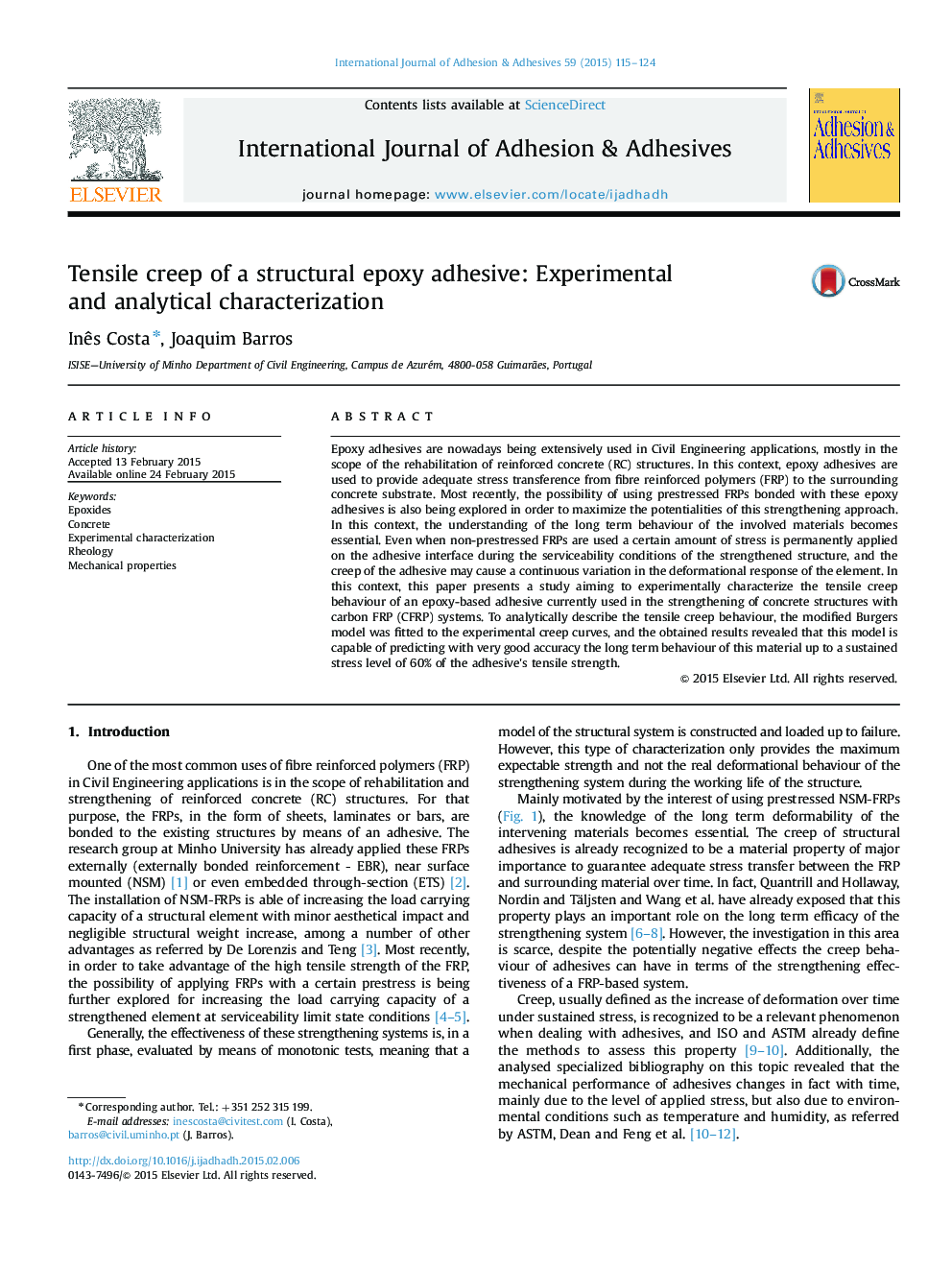| Article ID | Journal | Published Year | Pages | File Type |
|---|---|---|---|---|
| 779901 | International Journal of Adhesion and Adhesives | 2015 | 10 Pages |
Epoxy adhesives are nowadays being extensively used in Civil Engineering applications, mostly in the scope of the rehabilitation of reinforced concrete (RC) structures. In this context, epoxy adhesives are used to provide adequate stress transference from fibre reinforced polymers (FRP) to the surrounding concrete substrate. Most recently, the possibility of using prestressed FRPs bonded with these epoxy adhesives is also being explored in order to maximize the potentialities of this strengthening approach. In this context, the understanding of the long term behaviour of the involved materials becomes essential. Even when non-prestressed FRPs are used a certain amount of stress is permanently applied on the adhesive interface during the serviceability conditions of the strengthened structure, and the creep of the adhesive may cause a continuous variation in the deformational response of the element. In this context, this paper presents a study aiming to experimentally characterize the tensile creep behaviour of an epoxy-based adhesive currently used in the strengthening of concrete structures with carbon FRP (CFRP) systems. To analytically describe the tensile creep behaviour, the modified Burgers model was fitted to the experimental creep curves, and the obtained results revealed that this model is capable of predicting with very good accuracy the long term behaviour of this material up to a sustained stress level of 60% of the adhesive׳s tensile strength.
